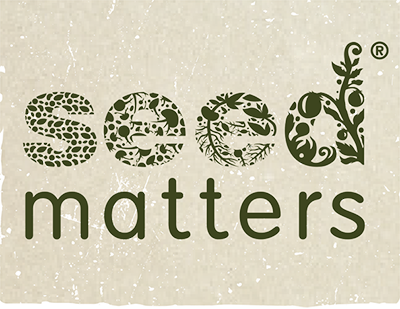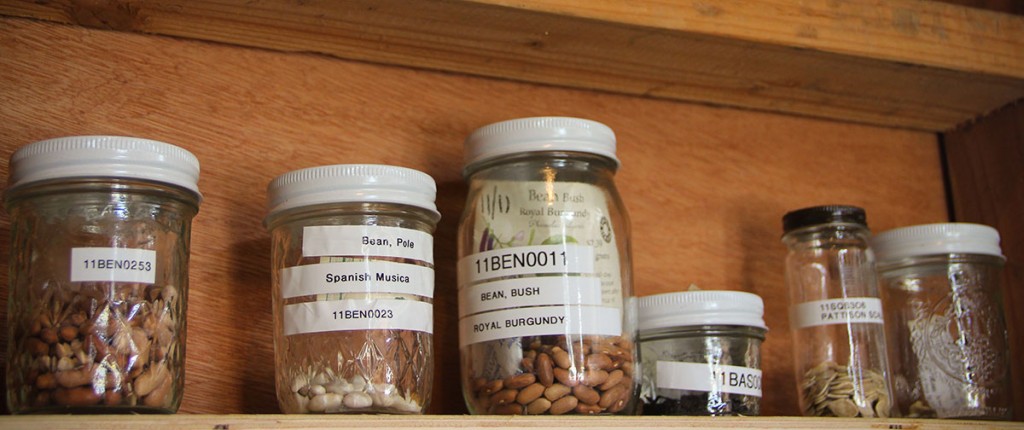
Save Seed Sharing

Did you know that in a growing number of states, sharing seeds is against the law? State regulators are shutting down small seed libraries across the US. They believe seed sharing is a threat to our food system. The real threat is to restrict seed sharing, as seed security is the foundation of food security.
For 12,000 years we’ve been saving and sharing seed, and it is the foundation of the crop and food diversity we all enjoy today…the flavor, color, forms, and regional adaptability….that’s not a modern invention; it’s the seed legacy we all inherited.
Even in the very recent history of the seed industry seed sharing has maintained an essential place in communities around the world. Here in the United States, seed sharing has been on the rise since the mid-1970s when national groups like Seed Savers Exchange were launched. In the last decade dozens of regional seed exchanges have thrived, with gardeners and farmers listing and offering locally saved seed to others.
And in the last few years there has been a new seed sharing phenomenon, one that we at Seed Matters have supported – the creation of community seed libraries. Over 300 communities now have central locations, often housed in Public Libraries, that offering seed and gardening information to patrons. These libraries have been written about, filmed in PBS shows, and celebrated as an important transition in how libraries serve their communities. It’s fitting – seed is encapsulated information, the story of human-plant interaction as well as the operating instructions for plants.
But unfortunately there’s been some misunderstanding. It started in Pennsylvania with a seed library being shut down by the state department of agriculture, and the trend is spreading with Maryland, Minnesota, and Nebraska being the most recent states to start warning or shutting down seed libraries.
Why? No, it’s not an evil cabal from Big Seed – thinking that and spreading that misinformation won’t help us find solutions. It’s about state seed laws that were written to stop unscrupulous seed dealers from selling bad seed, but that are being misapplied to free public seed exchanges.
Seed laws were passed for good intentions, primarily to stop unscrupulous seed dealers (of which there were many in the early 1900s, and likely a few today) who sold farmers seed that was not as described, had seed-borne disease that destroyed crops, and/or didn’t germinate as promised. The laws were meant to protect farmers – and really to create food security. Unfortunately, state administrators are applying these laws without applying reason.
Seed libraries often don’t test seeds, and they shouldn’t have to. They aren’t selling seeds – they just facilitate the sharing of locally saved seeds among community members. People don’t expect these seeds to meet rigorous testing or labeling standards, and requiring so would unreasonably restrict people’s access to seed and the healthy food it produces.
There are no reasonable scenarios for the threats that have been suggested by some administrators who fear agri-terrorism or even for accidental spread of invasive plants, as some administrators have suggested. Birds, mammals and humans inadvertently disseminate invasive species every day – millions of seeds compared to the tiny fraction a seed exchange might accidentally spread. Seed exchanges have been in existence in this country for decades and there has never been one reported incidence of them as the cause of plant disease epidemics, agri-terrorism, or massive spread of invasive species.
We need to educate state officials, and sit down and reason with them. We also need to work with libraries to develop protocols including signage that describes what this seed is and is not – that it doesn’t have guarantees of quality, germination, or purity. And we need to keep proving seed saving education like Seed Matters does, so that local seed groups do a good job saving seed and avoiding the kind of problems that the state regulators fear. Seed Matters is proud to partner with Sustainable Economies Law Center, Richmond Grows, Shareable and others in finding a solution. You can help us save seed sharing.
What can you do?
- Sign a Petition to State Agricultural Departments
- How to create a seed sharing campaign in your town
Learn more about what legal resources and support SELC is providing